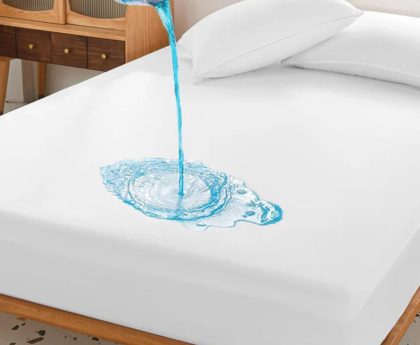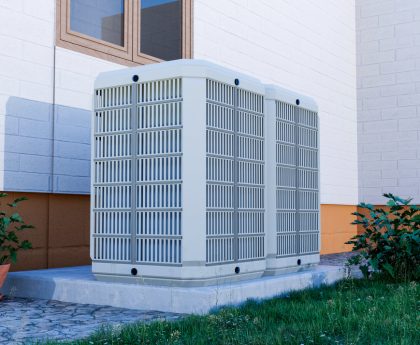Regular maintenance is crucial for the smooth operation of your garage door. It helps identify potential issues early on, preventing them from escalating into more significant problems. Additionally, routine maintenance ensures the safety of your family and belongings by addressing any safety hazards promptly.
Why Regular Maintenance Matters
Garage doors maintenance are heavy and operate under high tension, making them potentially dangerous if not properly maintained. Regular maintenance helps prevent accidents such as door malfunctions, broken springs, or sudden closures, which can cause injury or property damage.
Safety Concerns with Neglected Garage Doors
Neglected garage doors pose various safety risks, including falling doors, trapped fingers, and accidents involving malfunctioning components. By prioritizing regular maintenance, homeowners can mitigate these risks and ensure the safety of their loved ones.
The Importance of Professional Inspection
While DIY maintenance is essential, scheduling routine inspections by a professional is equally important. Professional technicians have the expertise to identify potential issues that may go unnoticed during regular maintenance.
Scheduling Routine Inspections: When and Why
It’s recommended to schedule a professional inspection at least once a year, preferably before the start of extreme weather seasons. These inspections help identify wear and tear, damaged components, or safety hazards that require immediate attention.
Common Issues Identified During Inspections
During inspections, technicians often identify issues such as worn-out springs, frayed cables, misaligned tracks, or malfunctioning sensors. Addressing these issues promptly can prevent costly repairs or accidents in the future.
Addressing Safety Hazards Promptly
Safety hazards such as broken springs or malfunctioning safety sensors should be addressed immediately to prevent accidents. Professional technicians can assess the severity of the issue and recommend the necessary repairs or replacements to ensure the safety of your garage door system.
DIY Maintenance Tips
In addition to professional inspections, homeowners can perform regular DIY maintenance to keep their garage doors in optimal condition. These simple tasks can help extend the lifespan of your garage door and prevent minor issues from escalating into major problems.
Visual Inspection: A First Line of Defense
Regular visual inspections can help homeowners identify potential issues early on. Look for signs of wear and tear, such as rust, corrosion, or damaged components, and address them promptly to prevent further damage.
Lubrication: Keeping Components Moving Smoothly
Lubricating moving parts such as rollers, hinges, and springs is essential for smooth operation. Use a silicone-based lubricant to prevent rust and corrosion and ensure that the door operates quietly and efficiently.
Tightening Hardware: Ensuring Structural Integrity
Periodically check and tighten the hardware, including bolts, screws, and hinges, to ensure that the door remains structurally sound. Loose hardware can cause the door to operate improperly and lead to premature wear and tear.
Seasonal Maintenance Tasks
Different seasons bring unique challenges for garage door maintenance. By addressing seasonal issues promptly, homeowners can prevent weather-related damage and ensure the longevity of their garage door system.
Summer Maintenance: Addressing Heat-Related Issues
During the summer months, heat and humidity can cause metal components to expand and contract, leading to misalignment or operational issues. Inspect and lubricate the door regularly to prevent these issues from occurring.
Winter Maintenance: Protecting Against Cold Weather Challenges
Cold weather can affect the operation of your garage door, causing it to freeze or become stiff. Apply a de-icing solution to prevent freezing, and lubricate moving parts to ensure smooth operation during the winter months.
Fall Maintenance: Preparing for Temperature Changes
As temperatures fluctuate during the fall season, it’s essential to inspect the door for any signs of wear and tear. Replace worn weather seals and perform any necessary repairs to prevent drafts and moisture from entering the garage.
Troubleshooting Common Problems
Despite regular maintenance, garage doors may encounter common issues that require troubleshooting. Knowing how to identify and address these problems can save homeowners time and money on repairs.
Identifying Strange Noises: What They Mean
Strange noises such as grinding, squeaking, or banging may indicate underlying issues with the door’s components. Inspect the door for loose hardware, worn-out rollers, or misaligned tracks, and address the issue promptly to prevent further damage.
Dealing with Sensor Malfunctions
Malfunctioning safety sensors can prevent the door from closing properly, posing a security risk. Clean the sensors regularly and ensure that they are properly aligned to prevent false alarms or operational issues.
Fixing Misaligned Tracks: A DIY Guide
Misaligned tracks can cause the door to operate unevenly or become stuck during operation. Use a level to check the alignment of the tracks and adjust them as needed to ensure smooth operation.
Enhancing Security Measures
In addition to regular maintenance, homeowners can enhance the security of their garage door system by investing in modern security features and smart technology.
Upgrading to Smart Garage Door Systems
Smart garage door systems allow homeowners to monitor and control their garage door remotely using a smartphone app. These systems provide added security and convenience by sending alerts and notifications about the door’s status.
Adding Additional Security Features
Consider installing additional security features such as motion-activated lights, security cameras, or keypad entry systems to deter intruders and enhance the security of your garage.
Securing Remote Controls: Preventing Unauthorized Access
Keep remote controls secure and avoid leaving them in plain sight inside your vehicle. Consider using a keychain remote or a smartphone app for added security and
Extending the Lifespan of Your Garage Door
Proper maintenance and care can significantly extend the lifespan of your garage door, saving you money on repairs and replacements in the long run. Understanding when to repair or replace components can help you make informed decisions about your garage door’s maintenance.
Understanding When Replacement Is Necessary
Despite regular maintenance, garage doors may eventually reach the end of their lifespan. Signs such as extensive rust, severe damage, or frequent breakdowns indicate that it’s time to consider replacing the door altogether.
Choosing the Right Material for Longevity
When replacing your garage door, consider the durability and longevity of different materials. Steel doors are known for their strength and low maintenance, while wood doors offer a timeless aesthetic appeal but require more upkeep.
Maintaining Aesthetic Appeal Alongside Functionality
Maintaining the aesthetic appeal of your garage door is essential for enhancing your home’s curb appeal. Choose a design and color that complements your home’s exterior while ensuring that the door’s functionality and security are not compromised.
Conclusion
Regular maintenance is crucial for ensuring the longevity and safety of your garage door. By following the tips outlined in this article, homeowners can address common issues, prevent safety hazards, and extend the lifespan of their garage door system. Remember to schedule routine inspections, perform DIY maintenance tasks, and invest in modern security features to keep your garage door operating smoothly and securely for years to come. With Door Dorks, you can trust that your garage door is in good hands.





